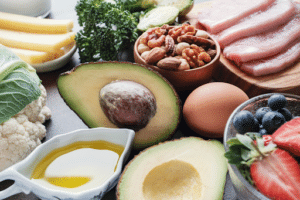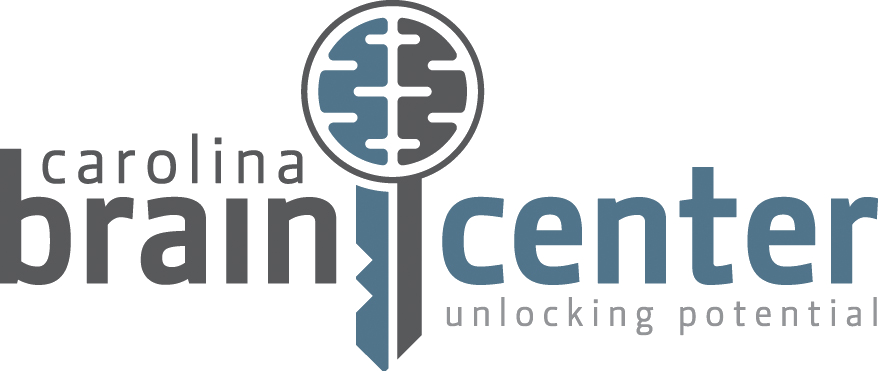
Traumatic brain injuries (TBIs), including concussions, are becoming increasingly recognized for their long-term effects on cognitive function, mood, and overall brain health. When a person experiences a concussion, the immediate focus is often on physical symptoms such as headaches, dizziness, and confusion. However, the underlying biochemical changes in the brain—the neurometabolic cascade of concussion—can persist well after the initial injury, leading to prolonged symptoms. Recent research has explored alternative therapeutic strategies to support brain recovery, and one of the most promising interventions is the ketogenic diet. By providing an alternative energy source to glucose, which is often impaired after a brain injury, the ketogenic diet may help resolve the energy crisis and oxidative stress triggered by the neurometabolic cascade of concussion.
Understanding the Neurometabolic Cascade of Concussion
When a concussion occurs, the brain undergoes a complex set of biochemical reactions known as the neurometabolic cascade of concussion (NMCC). This cascade is triggered by the initial mechanical forces that disrupt neuronal function, leading to excitotoxicity (excessive neuronal firing), oxidative stress, and impaired glucose metabolism. These changes result in a brain-wide energy crisis where neurons struggle to maintain homeostasis, leading to cognitive, emotional, and physical impairments.
The cascade begins with the release of excitatory neurotransmitters such as glutamate, leads to a massive efflux of potassium out of the cells creating a higher demand for ATP (the cells’ energy currency) within a disrupted supply chain. Because the NMCC also leads to calcium influx into cells, the mitochondrial—the powerhouse of the cell—struggles to keep up with the supply needed to meet the new higher demand. Mitochondrial dysfunction is one of the critical drivers of the brain’s energy crisis post-concussion.
In 2001, Giza and Hovda introduced the concept of the neurometabolic cascade, emphasizing that the secondary injuries following the initial trauma, such as oxidative stress and inflammation, contribute to long-term neurological deficits. These secondary injuries can persist for weeks, months, or even years, highlighting the importance of addressing the cascade early on to prevent chronic symptoms.
Ketones as an Alternative Energy Source for the Brain
The ketogenic diet, which involves drastically reducing carbohydrate intake and increasing fat consumption, forces the body to switch from using glucose as its primary fuel source to using ketones. Ketones, such as beta-hydroxybutyrate (BHB) and acetoacetate (AcAc), are produced by the liver during periods of fasting or carbohydrate restriction. These ketones serve as an alternative energy source for the brain, bypassing the glucose metabolism pathways that are often impaired after a concussion.
Research published by the NIH has shown that ketone bodies provide a more efficient and stable source of energy for the brain compared to glucose. In a concussed brain, where glucose metabolism is impaired due to mitochondrial dysfunction and reduced cerebral blood flow, ketones offer a critical alternative fuel that can help restore energy balance and support recovery. Ketones are readily used by neurons and other brain cells, enhancing mitochondrial function and reducing oxidative stress.
In a 2021 review, NIH researchers highlighted the neuroprotective properties of ketones in conditions of traumatic brain injury. They found that ketones not only provide an alternative source of ATP but also reduce the production of reactive oxygen species (ROS), molecules that contribute to cellular damage and inflammation after a concussion. By reducing oxidative stress, ketones can help protect the brain from further injury and promote cellular repair.
The Role of Ketones in Reducing Excitotoxicity and Inflammation
Excitotoxicity, which occurs when neurons are overstimulated by excessive amounts of glutamate, is one of the main contributors to neuronal damage after a concussion. Glutamate, an excitatory neurotransmitter, is released in large quantities following brain trauma and overstimulates neurons, leading to calcium influx into cells. This calcium overload damages mitochondria, resulting in further energy deficits and ultimately, cell death. The ketogenic diet has been shown to modulate this process by increasing the production of gamma-aminobutyric acid (GABA), a calming neurotransmitter that counteracts the effects of glutamate.
According to a study published in Frontiers in Neurology, ketone bodies can reduce excitotoxicity by enhancing GABA activity and limiting glutamate release. This reduction in neuronal firing prevents further neuronal damage and allows the brain to recover from the excitotoxic effects of the neurometabolic cascade. Additionally, ketones have been shown to stabilize neuronal membranes and improve the function of ion channels, which are critical for maintaining cellular homeostasis in the aftermath of a concussion.
Inflammation is another key factor in the progression of post-concussion symptoms. Chronic inflammation in the brain, driven by the release of pro-inflammatory cytokines, contributes to the development of conditions such as post-concussion syndrome (PCS), characterized by persistent symptoms like headaches, dizziness, and cognitive impairments. The ketogenic diet, through its anti-inflammatory effects, has been shown to reduce the levels of these cytokines, including tumor necrosis factor-alpha (TNF-alpha) and interleukin-6 (IL-6), which are elevated after a traumatic brain injury.
A review conducted by the NIH in 2022 highlighted that ketone bodies can downregulate inflammatory pathways in the brain, thereby reducing the risk of developing chronic neuroinflammation. This reduction in inflammation not only accelerates recovery but also decreases the risk of long-term complications such as depression, anxiety, and even neurodegenerative diseases like Alzheimer’s.
Clinical Evidence Supporting the Ketogenic Diet in Concussion Recovery
While most of the research on the ketogenic diet has focused on epilepsy, its potential benefits for brain injury recovery are gaining increasing attention. Clinical studies have begun to explore the effects of ketosis on cognitive function, inflammation, and energy metabolism in individuals recovering from concussions. The NIH has supported several studies that suggest ketones can enhance recovery following brain injury by providing the brain with an alternative fuel source and protecting against further damage.
A study published in Journal of Neurotrauma, researchers examined the effects of a ketogenic diet on cognitive function in patients with mild traumatic brain injury. The results showed that patients who followed a ketogenic diet demonstrated significant improvements in memory, attention, and overall cognitive performance compared to those who consumed a standard diet. The study also found that ketogenic patients had lower levels of oxidative stress and inflammation, indicating that the diet had a protective effect on the brain.
Additionally, a study published in Frontiers in Nutrition highlighted the ability of ketones to reduce brain edema (swelling) and improve mitochondrial function following brain trauma. These findings provide further support for the use of the ketogenic diet in concussion recovery, as brain swelling and mitochondrial dysfunction are common issues that hinder recovery. The researchers concluded that the ketogenic diet not only provides neuroprotection but also enhances the brain’s capacity for healing by supporting cellular repair mechanisms.
Implementing the Ketogenic Diet in Clinical Practice
While the ketogenic diet holds promise as a therapeutic tool for concussion recovery, it is essential to approach its implementation with care. Transitioning to a state of ketosis requires strict dietary modifications that involve reducing carbohydrate intake to less than 10% of daily calories and increasing fat intake to 70-80%. This shift can be challenging for some patients, especially those unfamiliar with low-carbohydrate diets.
In clinical practice, the ketogenic diet should be implemented under the guidance of healthcare professionals who can monitor patients for potential side effects such as fatigue, dehydration, or electrolyte imbalances. It is important to ensure that patients remain well-hydrated and consume adequate amounts of electrolytes (such as sodium, potassium, and magnesium) to prevent complications. Additionally, exogenous ketones, which are ketone supplements, may be used to help patients achieve ketosis more quickly, especially in the acute phase of concussion recovery.
Healthcare providers should also consider combining the ketogenic diet with other therapeutic interventions, such as hyperbaric oxygen therapy (HBOT) or transcranial low-level laser therapy (LLLT), to maximize recovery outcomes. By addressing both the neurometabolic and physical aspects of concussion recovery, a comprehensive approach can be developed that supports the patient’s overall well-being.
Addressing Post-Concussion Syndrome (PCS) with Ketosis
For individuals suffering from post-concussion syndrome (PCS), where symptoms persist beyond the typical recovery period, the ketogenic diet may offer an additional benefit. Chronic inflammation and ongoing oxidative stress are significant contributors to PCS, and ketones can help reduce these processes.
Because ketones provide a stable source of energy for the brain, they help alleviate the “brain fog” and cognitive fatigue often reported by PCS patients. This improvement in mental clarity is likely due to the reduction in neuroinflammation and oxidative damage, allowing the brain to heal more effectively.
How We Can Help
At Carolina Brain Center in Raleigh, NC, we believe that understanding the neurometabolic cascade and using innovative treatments can accelerate concussion recovery. Our personalized approach from both in-office treatments and at-home work incorporates therapies like the ketogenic diet, hyperbaric oxygen therapy, and transcranial low-level laser therapy to help patients heal efficiently.
If you’ve recently experienced a concussion and feel too unwell to start treatment, we offer strategies that allow you to begin healing even while resting. For acute concussions, we use a combination of hyperbaric oxygen ketone therapy and laser therapy to reduce the effects of the neurometabolic cascade. For patients with prolonged symptoms, we develop customized rehabilitation programs that combine at-home and in-office treatments.
Take the first step towards recovery by filling out our phone consultation request form today. The knowledge and care you’ll receive at Carolina Brain Center will set you on the path to healing.

